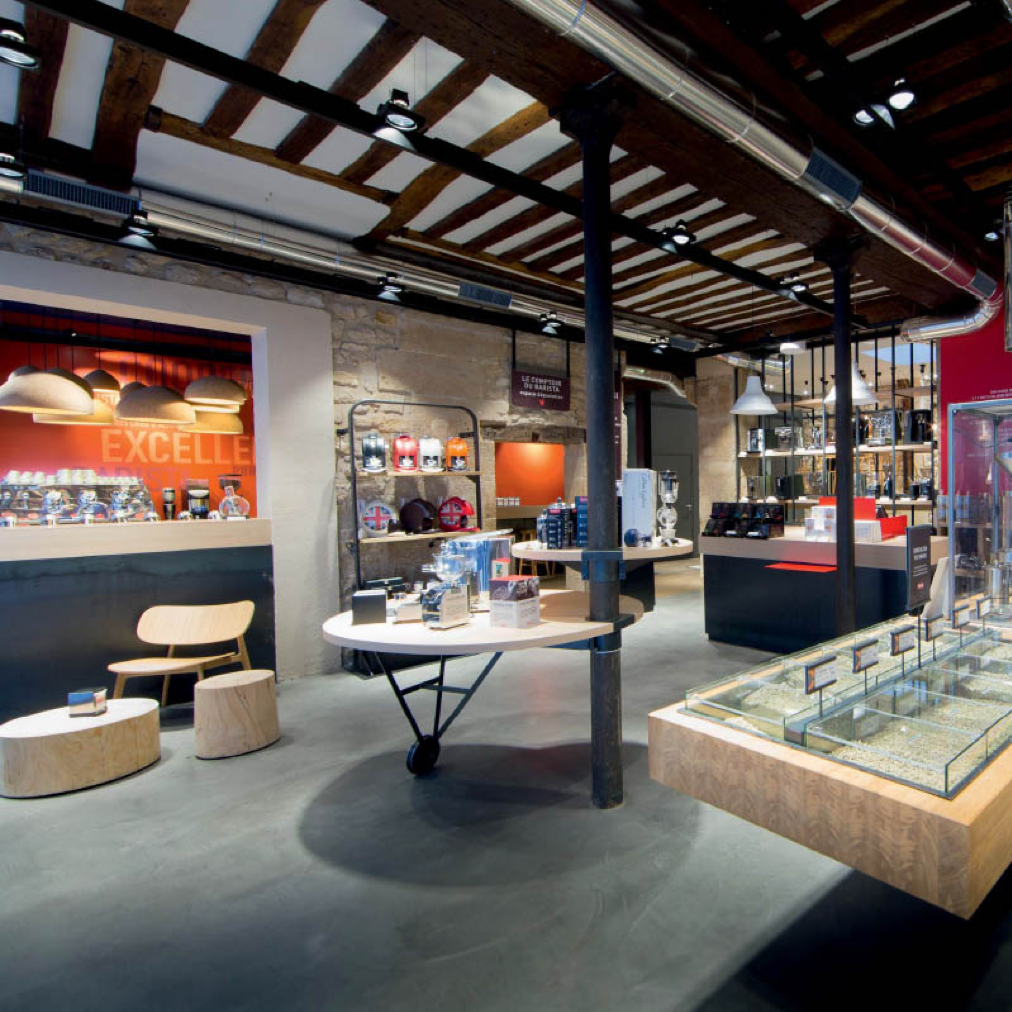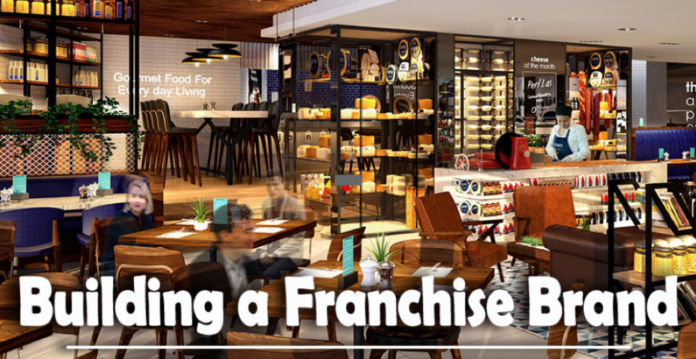Picture is for illustrative purposes only
Image Credit: Supplied
Building a brand that captures the enthusiasm of consumers and creating a perfect blend of autonomous franchise brand development plus strategic management can be an uphill task, especially when you’re new to the field. The problem escalates even further when you’re not familiar with different industry strategies for building such a brand. It can become even more devastating when you set up such a brand only for it to crumble and fail.
In fact, one of the toughest challenges of franchise brands is being able to maintain their brand identity while at the same time, outsourcing it to the franchisees. With the current ease of access to information, brands are always at the brink of losing their credibility, much so the franchise brands. If a franchisee business deviates from laid out rules and procedures of offering your service, your brand suffers the most.
To that end, it is imperative for franchise brand managers and owners to have strategic knowledge on franchise brand development and effective ways to avoid mutual exclusion with the franchisees. Explained below are ways to start a franchise business model and scale it up to be among successful franchise models of the world.
How to start a Franchise Business Model
As you embark on your franchise brand development, it is important to note that as with any business, challenges will occur. Ensuring that you plan ahead accordingly and you are knowledgeable about your market will help you mitigate some of those challenges.
1. Identify your niche
Your number one goal when starting out a franchise brand is to have as many franchisees as possible. After all, they are your “customers.” As such, being cognisant with your market requirements and their pain points can be a good starting point. Ideally, you want a niche that can scale up with time. In most cases, service industries seem to offer the best franchise models. Restaurants and food chains especially, have a high rate of success rate. Talk about McDonald’s, KFC, and different pizza chains.
A good niche is one that most franchisees will jump on to and be guaranteed of high sales. Good thing is that statistics on successful franchise models are on their side. The success rate of these models is 91%. That is not to say competition is low. You will have to be creative and come up with different strategies that resonate with your target consumers. Sell them a solution that will cater for their pain point while making your brand stand out from the rest.
2. Build your unique product
Having identified the niche you’re most comfortable with, the second task is having a product that will stand out from the rest, and that will knock the competition off their feet. This in effect has the ability to attract more franchisees as more customers will increase the demand for your product. More sales to your franchisees means more royalties to your brand. While on that note, having unique brand identifiers that are simple to remember and attractive gives you a competitive edge against your competitors. A case in point is the double arches of McDonald’s – simple, yet so remarkable and recognised worldwide. That’s what you want.
3. Outline requirements for Franchisees
In most cases, franchisees will want to own their businesses fully and unlink themselves from you. It is therefore befitting that you have stringent measures to avoid this and to keep them in your brand. While at it, do not exert too much pressure or it will become unattractive to most of them. The key here is hitting up on those major requirements that will keep them providing your products while ensuring the royalties trickle down. Keep in mind that successful franchise models are those that accord their franchisees freedom to run their own businesses while still honing in on that franchise business model. Involve a lawyer in designing up the contracts to ensure everything is well laid out legally and to prevent franchisees from exploiting your brand.
4. Select the right locations
One of the key aspects of franchise brand development is ensuring that the businesses are located in strategic locations. Consumers should be able to reach them easily without any frustration. To maximise on profits, selecting places with good infrastructures and high population gives a competitive edge. Also, locations with high-income earners tend to be the best as prices stop being an issue and service delivery and experience become the main differentiator in the market. Franchisees should be made to understand that they’re restricted to certain locations and with time, as you scale up, other locations can be allowed.
5. Offer advice and support to Franchisees
If all of the above have been done, don’t let the businesses flow alone. Offer advice and lend a listening ear. Be supportive and provide technical skills to the franchisees. In fact, avail them tools for marketing and advertising in order to advance their franchise businesses. In any case, you’re the brand manager, and they’re your customers. It is an inverted pyramid, unlike most business models. They win, you win.
Strategies for building a successful franchise brand

Now you have set up your franchise brand. There are various strategies that you can execute to ensure that your brand becomes a success. Such include building a consistent brand image, being corporative, being emotionally engaging with your franchisees, and being rational in making business decisions that affect franchisees. All these explained in much detail down below.
1. Building a consistent brand image
Consumers have built in themselves an expectation of predictability. A brand that is not consistent with its services, its appearance, its level of services, and quality of product almost always falls out with the consumers. It’s guaranteed to fail. Consumers want to have the same level of quality or even better every time they visit your franchise.
Ensuring that this same level of expectation is ingrained in the franchisees and that they deliver the same quality level every time or even better is important to ensure success of the business. It is important, however, to note that franchisees, in most cases, do not have skills in brand management. Therefore, providing guidelines on how to achieve this is paramount, lest it will be futile.
2. Be corporative
Ensuring that you understand the franchisees’ pain points and their challenges can be a good way to build corporation among you. Honing in on this strategy, you should ensure that you listen to their cries and needs and act accordingly and collaboratively in coming up with solutions.
Being corporative allows you to have indirect control of the franchisees and gets you involved in their business decisions giving you the ability to influence the direction they take. Employing this strategy in your franchise brand development will not only ensure a strong rapport built with the franchisee, but you will also create genuine trust among them with your brand.
3. Educate franchisees
As stated earlier, most franchisees don’t have an understanding on running successful franchise business models. Having a web portal, for instance, with various resources and tools that they can employ can prove beneficial to your brand. Availing different training workshops where they gain various skills on advancing their businesses is important to having successful franchise models.
On top of equipping them with business skills, make sure they understand the ramifications of deviating from the brand guidelines, rules and the consequences. Make them understand the dos and don’ts of your brand and how each impacts the customers’ loyalty to your brand.
4. Be emotionally engaging with your franchisees
Being able to foster a relationship with your franchisees is key to franchise brand development. Having them be emotionally attached to your brand can build loyalty and trust to your brand. This can be achieved through rewarding successful franchisees, engaging in relevant roundtable franchise discussions, and constant communication strategy to always be listening to their needs and complaints in order to improve the general outlook of your brand.
5. Be rational
While setting up guidelines and procedures for franchisees, avoid making them rigid and too strict. Avoid harsh decisions that may constrict franchisees business and that may foster bad blood between brand managers and customers. Use common sense when coming up with solutions that are humanely rational and do not come out as overly harsh. If a franchisee’s building doesn’t look, say, a certain way as per the guidelines, make an exception honestly, as long as it won’t affect consumer’s loyalty to your brand.
Wrapping Up the Tips for Successful Franchise Brand Development
Having these strategies balanced out well in your franchise brand development can go a long way in fostering loyalty and trust with your franchisees. Being emotionally engaged with them, corporative, and rational will not only show off your desires of seeing them succeed, it gives them the assurance that you’re looking out for them. In any case, your number one goal should be to foster trust and loyalty, and consequently, this makes the franchisees follow the guidelines and rules of the brand to the latter. Availing them with tools to advance their business has the advantage of increasing your brand awareness scope consequently leading to higher sales and higher revenue.
















